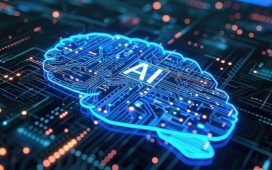Pakistan to get its first AI university soon, The rapid advancement of Artificial Intelligence (AI) globally has oriented it as a transformative force across numerous sectors, from healthcare and education to finance and governance. AI’s ability to process extensive amounts of data, predict outcomes, and automate complex tasks is revolutionizing industries, driving innovation, and creating new economic opportunities. As countries around the world embrace AI through focused research, education programs, and strategic investments, the potential for AI to reshape the future is becoming increasingly evident.
In a significant step towards utilizing this potential, Pakistan is set to establish its first AI university, marking a milestone in the country’s journey heading for technological innovation and education. Located in Lahore within the Nawaz Sharif IT City, this new institution endeavors to equip students with cutting-edge AI skills that are in high demand globally. This initiative not only reflects Pakistan’s commitment to advancing AI education but also positions the country to contribute meaningfully to the global AI landscape, nurturing a new generation of AI professionals ready to tackle local and global challenges.
Announcement and key details:
Punjab Chief Minister Maryam Nawaz recently announced the formation of Pakistan’s first Artificial Intelligence (AI) university in Lahore. This significant development is set to take place within the Nawaz Sharif IT City, a sprawling 853-acre hub designed to promote technological innovation and education in the region. The AI university is part of a broader effort by the Punjab government to elevate educational infrastructure and provide students with access to
cutting-edge IT skills that are increasingly in demand globally.
The strategic location of the university near the Pakistan Kidney and Liver Institute (PKLI) underscores its importance. Being part of the Nawaz Sharif IT City, the AI university benefits from proximity to a influential medical research facility, potentially fostering collaboration between the IT and healthcare sectors. This location within the broader IT City project, which includes plans for a Knowledge City and Film City, aims to create a in-depth ecosystem for technology and education, positioning Lahore as a key player in the global IT landscape.
This initiative is expected to play a pivotal role in reducing youth unemployment by equipping graduates with the skills needed for the modern workforce, aligning with broader governmental goals of economic and technological advancement.
Government initiative and support:
The initiative is aimed at transforming Lahore into a technology focal point by attracting both local and international investments, with tech giants like Google and Microsoft already showing interest.
A significant focus of this project is on reducing youth unemployment by endowing the younger generation with essential IT skills. The government has launched several programs, including partnerships with leading universities to establish campuses in the Education City segment of the IT City. This will provide an approach to world-class education and IT training, thus empowering the youth to secure employment in the rapidly growing tech industry.
Furthermore, CM Maryam Nawaz has announced a Rs. 25 billion scholarship program focused on supporting students from Punjab to access top-tier educational institutions in Pakistan. This scholarship is part of a broader strategy
to enhance educational opportunities for the youth, thereby enabling them to support the economy through high-skill jobs.

Curriculum and goals:
The curriculum at Pakistan’s upcoming AI University is rigorously designed to align with global demands, focusing on advanced AI and IT skills. The university will offer comprehensive programs covering critical areas such as machine learning, natural language processing, robotics, computer vision, and vast learning. These programs are developed with a strong emphasis on practical applications, ensuring that students are armed with the necessary skills to tackle real-world challenges. The curriculum also includes hands-on experiences through internships, industry collaborations, and research projects, enabling students attain practical expertise alongside theoretical knowledge. The university’s facilities will support this curriculum with state-of-the-art laboratories, high-performance computing systems, and AI-enabled research environments.

Broader impact on education and employment:
The establishment of an AI university in Pakistan is prepared to have a significant impact on both the educational landscape and employment prospects in the country.
Influence on the Educational Landscape
The AI university is set to transform the broader educational environment in Pakistan by incorporating advanced AI curricula into higher education. This
strategy is expected to promote a new era of specialized education focused on AI, machine learning, and data science. As AI technologies become more endemic, educational institutions across Pakistan are likely to follow suit by updating their curricula to include AI-related subjects, thereby enhancing the overall quality and relevance of higher education in the country. The government’s support, through initiatives like Vision 2025 and the establishment of specialized AI research centers, underscores the commitment to building a strong educational framework that aligns with global technological trends. This metamorphosis will help position Pakistan as a competitive player in the global AI arena, potentially attracting international collaborations and investments in education and technology.
Impact on Employment
On the employment front, the rise of AI-focused education is expected to address a fundamental gap in the job market by equipping graduates with highly
sought-after skills. The call for AI expertise is growing rapidly across various industries, including healthcare, finance, agriculture, and retail. As a result, graduates from the AI university are likely to experience shorter job search times and higher employability due to the instantaneous relevance of their skills.
Additionally, the growing AI sector in Pakistan is advancing a vibrant startup ecosystem, further driving job creation. However, there are concerns about job displacement in sectors reliant on manual labor, as AI technologies may replace routine tasks. Therefore, while AI education will create new opportunities, it will also necessitate the reskilling of the workforce to adjust to the changing job landscape..







